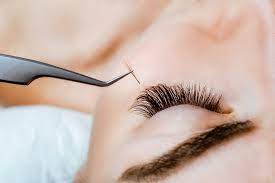
Introduction
Allergies can be a frustrating and discomforting experience, especially when they worsen unexpectedly. For individuals with respiratory issues or sensitivities to airborne allergens, maintaining clean indoor air quality is crucial. Many homeowners turn to air duct cleaning as a solution to reduce allergens and improve air circulation. However, some have reported experiencing worse allergies after duct cleaning, leading to confusion and concern. In this article, we will explore the reasons why allergies may worsen after duct cleaning and how to mitigate these effects for a healthier living environment.
Understanding Duct Cleaning and its Benefits
2.1. What is Duct Cleaning?
Duct cleaning is a process that involves removing dirt, debris, and contaminants from the HVAC (Heating, Ventilation, and Air Conditioning) system’s ductwork. This service is typically performed by professional technicians and aims to improve indoor air quality and system efficiency.
2.2. Benefits of Duct Cleaning
Proponents of duct cleaning assert that it can lead to various benefits, such as reducing airborne allergens, eliminating musty odors, and enhancing HVAC system performance.
Common Allergens in Air Ducts
3.1. Dust and Dust Mites
Dust and dust mites are common allergens that can accumulate in air ducts over time. When disturbed during duct cleaning, these particles can become airborne and trigger allergic reactions.
3.2. Pollen and Mold Spores
Pollen and mold spores, carried indoors through ventilation, can also settle in ducts. If not properly removed during cleaning, they may contribute to allergy symptoms.
3.3. Pet Dander and Hair
Pet owners often find pet dander and hair trapped in their air ducts. During cleaning, these allergens can be released, affecting those with pet allergies.
Can Duct Cleaning Make Allergies Worse?
4.1. The Controversy
The impact of duct cleaning on allergies remains a subject of debate. While some individuals experience relief after cleaning, others report exacerbated allergy symptoms.
4.2. Potential Triggers during Duct Cleaning
Several factors can contribute to worsened allergies during duct cleaning, including the sudden release of allergens, improper cleaning techniques, and pre-existing sensitivities.
Factors Contributing to Worsening Allergies
5.1. Pre-existing Allergies
Individuals with pre-existing allergies may be more susceptible to the temporary increase in allergen levels during and after duct cleaning.
5.2. Sensitivity to Irritants
People with heightened sensitivity to airborne irritants may react strongly to the disturbance caused by the cleaning process.
5.3. Duct Cleaning Methods
The methods used in duct cleaning can impact the release of allergens. High-powered vacuuming without proper containment can lead to allergens spreading throughout the home.
The Importance of Professional Duct Cleaning
6.1. Certified Technicians
Engaging certified professionals in duct cleaning can ensure proper handling of allergens and minimize the risk of exacerbating allergies.
6.2. High-Quality Equipment and Techniques
Using advanced equipment and techniques can effectively remove allergens without dispersing them further.
Mitigating Allergy Symptoms during Duct Cleaning
7.1. Temporary Relocation during Cleaning
Temporarily leaving the home during the cleaning process can reduce direct exposure to airborne allergens.
7.2. Ventilation and Air Purification
Ensuring proper ventilation and using air purifiers can help capture and reduce allergens during and after cleaning.
Post-Duct Cleaning Allergy Management
8.1. Regular Maintenance and Inspection
Regularly maintaining and inspecting the HVAC system can prevent the buildup of allergens and other contaminants.
8.2. Allergen-Proofing the Home
Taking additional measures to allergen-proof the home, such as using allergen-resistant filters and keeping pets away from vents, can further improve indoor air quality.
DIY Duct Cleaning and Allergy Risks
9.1. DIY vs. Professional Cleaning
While DIY duct cleaning may seem cost-effective, it carries the risk of improper cleaning and allergen dissemination.
9.2. Precautions for DIY Cleaning
If choosing to perform DIY duct cleaning, take precautions such as wearing protective gear and using appropriate tools to minimize allergen exposure.
Conclusion
In conclusion, duct cleaning can be a valuable practice to enhance indoor air quality and reduce allergens. However, for some individuals, allergies may temporarily worsen during and after the cleaning process. Engaging certified professionals, understanding potential triggers, and taking appropriate precautions can help mitigate these effects. By prioritizing proper duct maintenance and allergy-proofing strategies, homeowners can create a healthier living environment with improved indoor air quality.
FAQs
- Will duct cleaning completely eliminate allergies?While duct cleaning can significantly reduce airborne allergens, complete elimination of allergies depends on various factors, including individual sensitivity and allergen sources outside the duct system.
- How often should duct cleaning be done?The frequency of duct cleaning depends on factors such as location, environmental conditions, and the presence of allergens. Generally, it is recommended to have ducts cleaned every 3 to 5 years.
- Can pets worsen indoor allergies even after duct cleaning?Yes, pet dander and hair can continue to circulate indoors even after duct cleaning, especially if regular pet grooming and cleaning routines are not maintained.
- Is duct cleaning safe for children and the elderly?Duct cleaning is safe for all age groups, but individuals with respiratory conditions or allergies should take precautions to minimize exposure during the cleaning process.
- Can duct cleaning remove mold from the HVAC system?Duct cleaning can help remove mold spores and mildew buildup from the HVAC system, but if there is a significant mold infestation, it’s best to consult a professional mold remediation service.










